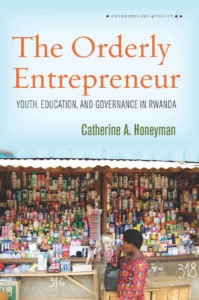Today we look at entrepreneurship education in Tanzania. You might be asking yourself, “Hey, didn’t FreshEd recently discuss entrepreneurship education in Rwanda?” You’re right. We did.
Obviously, the idea of entrepreneurship education is a global phenomenon, found in many different countries. As such, we need to understand what it is in each local context, who is promoting, how it is spreading, and what it means for education and society.
My guest today is Joan DeJaeghere. She has a new book out called Educating Entrepreneurial Citizens: Neoliberalism and youth livelihoods in Tanzania. For Joan, entrepreneurship education cannot be separated from neoliberalism, the contemporary form of capitalism that emerged in the 1970s.
Her book explores the multiple and contradictory purposes and effects of entrepreneurship education aimed at addressing youth unemployment and alleviating poverty in Tanzania.
Joan DeJaeghere is a Professor of Comparative and International Development Education in the Department of Organizational Leadership, Policy, and Development at the University of Minnesota.
Citation: DeJaeghere, Joan, interview with Will Brehm, FreshEd, 84, podcast audio, July 31, 2017. https://www.freshedpodcast.com/joandejaeghere/
Transcript, Translation, Resources:
Entrepreneurship education in Tanzania

